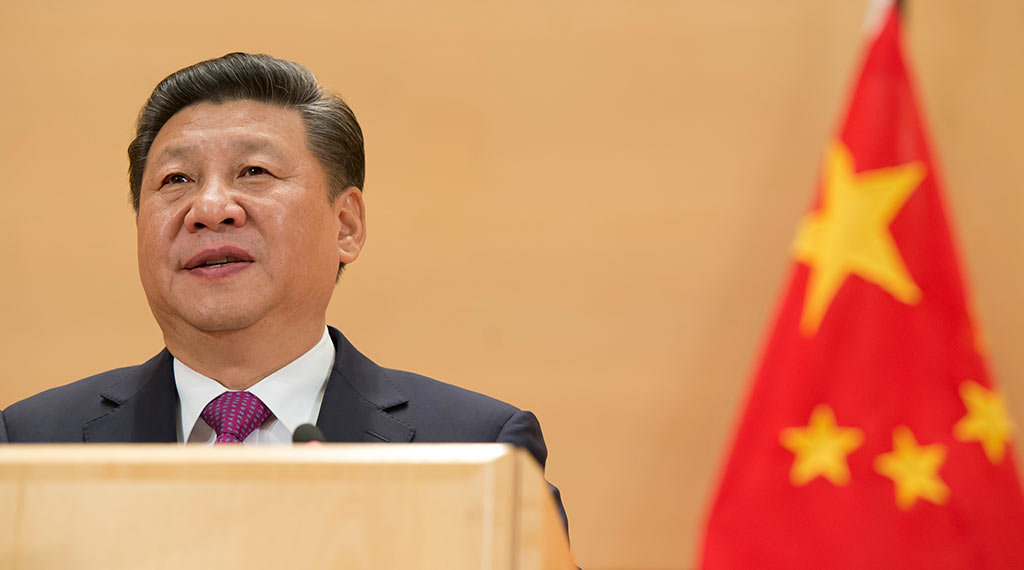America talks to China: Dialogue with nothing to show for it

There’s talk, and there’s productive talk. You would sometimes think U.S. officials are paid by the word and are content with the former sort of talk.
Secretary of State Antony Blinken and Secretary of Treasury Janet Yellen have recently visited China. Climate Czar John Kerry is currently visiting.
These visits and attendant dialogue are invariably described as “candid and constructive,” “direct, substantive, and productive,” vital to “maintain open channels of communications,” “responsibly manage competition,” “reduce risk of misperception and miscalculation,” and “to learn more about each other.”
And the subtext is that if the Americans stop talking, then war with China is just around the corner.
The idea seems to be that enough talking and the right words or incantations will bring Beijing to its senses. Exactly how isn’t clear. It’s not as if the Chinese don’t understand what the Americans are saying.
Maybe they’ll just get fed up with blabby Americans and concede? Or maybe it’s Blinken, Yellen, and Kerry’s sheer animal magnetism that is supposed to win over the Chinese communists? Add in a visit by Secretary of Defense Lloyd Austin to Beijing, and the animal magnetism will be overwhelming.
That said, suggest to our foreign policy elite and even our military top brass that talking for talking’s sake is unproductive, and you’ll get eye-rolling ridicule.
However, we’ve been talking nonstop to communist China for 30-plus years.
How well is dialogue and engagement working to modify Chinese behavior?
You can make your own scorecard.
Does the Chinese Communist Party (CCP) do any of the following?
- Back off of Taiwan. Stop military harassment and intimidation, and let Taiwan into international organizations.
- Back off of Japan. Lay off the Senkakus, and no more hints that Okinawa and the Ryukyu Islands are Chinese. Stop demonizing the Japanese.
- Back off the Philippines—and recognize the 2016 Permanent Court of Arbitration ruling that repudiated CCP claims to the South China Sea. Stay out of Philippine maritime territory.
- End cyber attacks on the United States.
- Stop stealing intellectual property from U.S. companies. And no longer demand handing over sensitive technology as the price of foreign companies’ admission to the China market.
- Allow foreign companies to conduct “due diligence” in China.
- End the requirement for Communist Party cells in foreign companies operating in China.
- Open the concentration camps and also stop eradicating Uyghur culture.
- End organ harvesting from prisoners of conscience, religionists, dissidents—or anyone else.
- Allow religious groups to operate freely.
- Free Jimmy Lai and other Hong Kong freedom advocates live up to the terms of the 1984 Hong Kong handover agreement.
- Stop fentanyl exports from China (that killed 70,000 Americans last year alone).
- Change the tone of public discourse so the Chinese media and official spokesmen no longer exhibit nonstop contempt and vitriol toward the United States.
- Enforce sanctions on North Korea (that Beijing has already agreed to) and stop interfering with aircraft and ships enforcing the sanctions.
- Rein in the Chinese fishing fleet—so it follows the rules rather than vacuuming the oceans—both high-seas and other people’s territory.
- Stop interfering with U.S. military operations in the South China Sea and Taiwan Strait.
- Make the yuan or RMB (Chinese currency) freely convertible—like Beijing promised to do years ago and more than once.
- Pull Chinese intelligence collection assets out of Cuba.
- Cooperate in an open inquiry into determining the origin of COVID-19.
- Close Chinese overseas “service centers” or “police stations,” and stop intimidating the overseas Chinese diaspora.
- Stop taking hostages and release the ones Beijing is holding.
There are a few dozen others, at least, but you get the idea.
Don’t get your hopes up, however.
Everything described above that needs improvement happened during the previous 30-plus years of talking, engagement, and accommodation of the CCP that was supposed to moderate communist Chinese behavior and turn it into a “responsible stakeholder.”
Official visit of the President of China by UN Geneva is licensed under CC BY-NC-ND 2.0
- United States-Japan alliance: reducing burdens or winning wars? - February 14, 2026
- Freeing Iran requires a push from the US – and fast - February 13, 2026
- ‘It’s about time’ the west ensured critical minerals security: analyst - February 12, 2026
